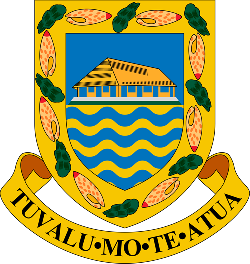Areas of Expertise
Project Status
Filter by project scope:
Project Type
Results
Preparation of Third National Communication (TNC) under the UNFCCC In relation to many SIDS, Tuvalu is extremely vulnerable to climate change and its impacts. Given that communities are very much aware of global warming and its damaging effects, they still continue to fight for their survival and future better livelihood. In every Conference of the Parties (COPs) and other Climate Change dialogues, Tuvalu continuously expressed a common phrase that “if you save Tuvalu, you save the world”. This is the Prime Minister’s impassioned phrasing challenging the parties to meet their obligations under the UNFCCC and its protocols. Ratifying the UNFCCC and its protocols including the Paris Agreement was part of Tuvalu obligation towards addressing climate change impacts.Generally, Tuvalu signed and ratified the United Nation Framework Convention on Climate Change (UNFCCC) on 8th June,1992 and has also ratified the Kyoto Protocol and the Paris Agreement. Having identifying detrimental environmental concerns such as coastal erosion, salt water intrusion and drought, it built efforts to develop its National Environmental Management Strategy (NEMS) in 1997, the National Adaptation Program of Action (NAPA) in 2007 and other new climate policies and strategies to ensure policy actions are effectively in place as well environmental and socioeconomic safeguards including gender are respectfully realized and implemented.
Status: Completed
Project Coordinator: Mr Saamu TuiAlthough climate change is cited as the most signifigant security threat to he south pacific, its likely effects on security and potential conflict are yet to be widely explored by the international an regional organisations present on the ground. Climate change in the pacific region has the potential for a myriad of cascading fragility and instability risks. These will affect men, women and youth differently, and vary across the region both according to timeframes under consideration and depending on the country context.There are a range of critical climate fragility risks emerging in the Pacific Region that will require greater examination, monitoring and coordinated action by many stakeholders at the national, regional and international level to prevent potential irrevesible economic, social, cultural and environmental damage with a range of potential security implications and a direct impact on social cohesion. Most critical issues amongst these include:
Status: Completed
